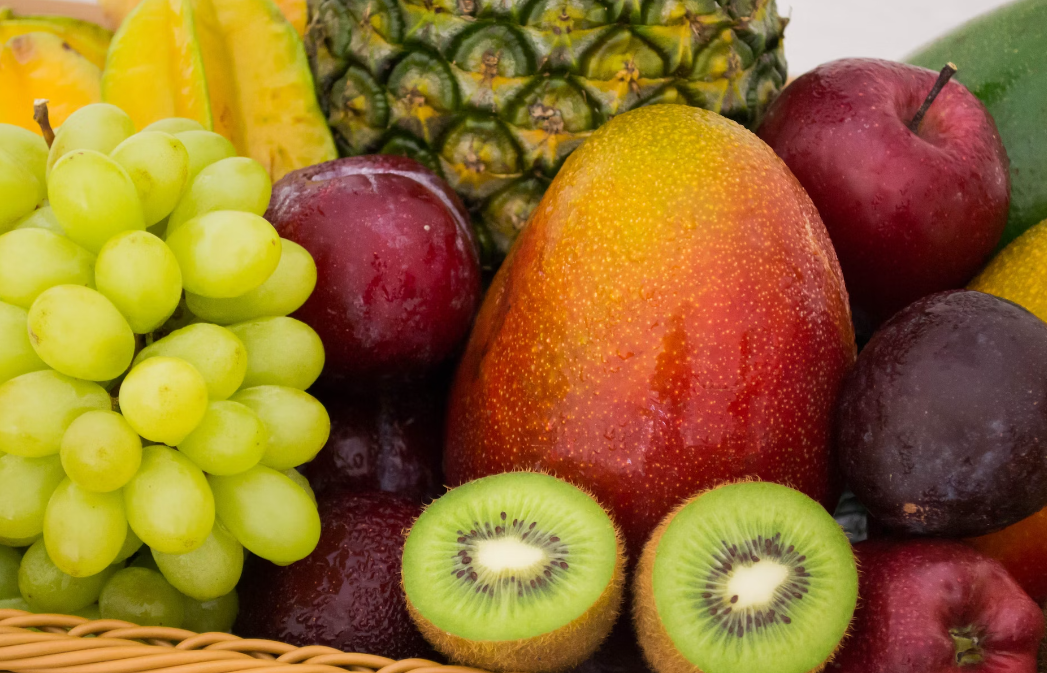Fruits are nature’s gift, packed with a vibrant array of flavors, colors, and essential nutrients that contribute to our overall health and well-being. Rich in vitamins, minerals, antioxidants, and dietary fiber, fruits offer a wide range of benefits, from supporting immune function to promoting digestive health. In this comprehensive guide, we’ll explore the top 10 best fruits to eat, highlighting their nutritional profiles and the various ways they contribute to a balanced and nourishing diet.
1. Berries: Nature’s Antioxidant Powerhouses
Berries, including blueberries, strawberries, raspberries, and blackberries, are among the most nutrient-dense fruits available. They are rich in antioxidants, particularly anthocyanins, which help protect cells from oxidative stress and inflammation. Berries are also a good source of dietary fiber, which supports digestive health and helps regulate blood sugar levels.
2. Apples: Crunchy and Nutrient-Rich
The saying “an apple a day keeps the doctor away” holds truth due to the array of health benefits apples offer. Apples are a great source of dietary fiber, mainly in the form of pectin, which supports digestive health and helps control appetite. They also provide vitamins like vitamin C and minerals like potassium, contributing to heart health and immune function.
3. Citrus Fruits: Immune-Boosting and Refreshing
Citrus fruits, including oranges, grapefruits, lemons, and limes, are renowned for their high vitamin C content. Vitamin C is essential for immune function, wound healing, and collagen production. Citrus fruits also provide dietary fiber and a host of antioxidants that support overall health and contribute to vibrant skin.
4. Bananas: Energy-Packed and Nutrient-Rich
Bananas are a popular and convenient fruit option that provides a quick energy boost due to their natural sugars and carbohydrates. They are a great source of potassium, an electrolyte that helps regulate fluid balance, muscle contractions, and nerve signals. Bananas also contain vitamin B6, which supports brain health and metabolism.
5. Kiwi: Vitamin C-Rich and Digestive Aid
Kiwi, also known as the “kiwifruit,” is packed with vitamin C, which supports immune health and collagen production. Additionally, kiwi contains an enzyme called actinidin, which aids digestion by breaking down proteins. This makes kiwi a digestive-friendly fruit that can be enjoyed on its own or added to smoothies and salads.
6. Pineapple: Tropical Delight with Enzyme Benefits
Pineapple is a tropical fruit known for its juicy sweetness and bromelain content. Bromelain is an enzyme that has anti-inflammatory properties and aids in digestion by breaking down proteins. Pineapple also provides vitamin C and manganese, a mineral that supports bone health and metabolism.
7. Mango: Sumptuous and Rich in Nutrients
Mangoes are beloved for their rich, tropical flavor and impressive nutrient profile. They are a great source of vitamin A, which supports vision health, and vitamin C, which boosts immune function. Mangoes are also rich in dietary fiber and antioxidants like beta-carotene, contributing to overall health and well-being.
8. Watermelon: Hydrating and Refreshing
Watermelon is a hydrating and refreshing summer fruit known for its high water content. This makes it an excellent choice for staying hydrated, especially during hot weather. Watermelon provides vitamins A and C, as well as the antioxidant lycopene, which has been associated with heart health and skin protection.
9. Pomegranate: Nutrient-Dense and Antioxidant-Rich
Pomegranates are a symbol of health and fertility in many cultures, and for good reason. The seeds, or arils, of the pomegranate are rich in antioxidants, particularly punicalagins and anthocyanins, which have been linked to heart health and anti-inflammatory effects. Pomegranates are also a good source of vitamin C and dietary fiber.
10. Papaya: Digestive Enzymes and Nutrient Bounty
Papaya is not only delicious but also boasts digestive benefits due to its enzyme papain, which aids in breaking down proteins. Papaya is rich in vitamins A and C, both of which contribute to immune health and skin integrity. The fruit also provides folate, a B-vitamin important for cell division and prenatal health.
In conclusion, the best fruits to eat are those that offer a diverse range of nutrients and health benefits. Incorporating a variety of fruits into your diet ensures that you’re getting a wide array of vitamins, minerals, antioxidants, and dietary fiber. From berries packed with antioxidants to citrus fruits bursting with vitamin C, each fruit brings its own unique advantages to support your overall well-being. Remember to enjoy fruits in their whole form to maximize their nutritional benefits and savor their natural flavors.
